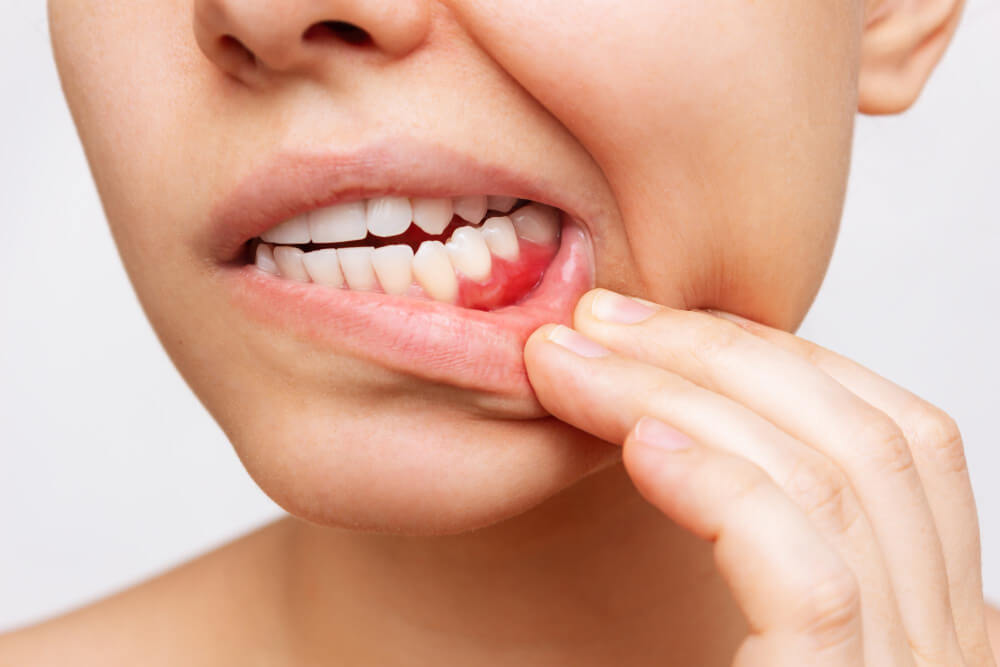
Newsletter Subscribe
Enter your email address below and subscribe to our newsletter

Enter your email address below and subscribe to our newsletter

Discover the truth about gum disease: Is it contagious? Uncover expert insights, prevention tips, and how it spreads in our comprehensive article. Learn more now!"
Gum disease, a common concern affecting millions worldwide, raises an important question: is periodontal disease contagious??
This article delves into the heart of the matter, exploring the intricacies of gum disease, its transmission, and the expert opinions surrounding its contagious nature.
We’ll guide you through the latest research, prevention strategies, and the steps you can take to protect yourself and your loved ones.
Gum disease is influenced by the transfer of harmful bacteria through saliva, occurring during activities like kissing or sharing utensils. However, whether someone develops gum disease depends on their oral hygiene, genetic susceptibility, lifestyle choices, and immune system strength, rather than just exposure to these bacteria.
Maintaining good oral health practices and regular dental visits are essential in preventing the onset and progression of gum disease, highlighting that while bacteria can be shared, the disease’s development is multifactorial and not directly contagious like common viral or bacterial infections.
Gum disease is primarily caused by the buildup of plaque, a sticky film of bacteria that forms on teeth. The bacteria that contribute to gum disease and tooth decay can be transmitted through saliva, meaning that it is theoretically possible to spread these bacteria to someone else through activities that involve the exchange of saliva, such as kissing or sharing utensils, cups, or toothbrushes.
However, the risk of developing gum disease is more complex than simply being exposed to these bacteria. Factors that determine whether a person will develop gum disease include:
While it’s possible to transmit bacteria associated with gum disease through saliva, maintaining good oral hygiene and a healthy lifestyle are key factors in preventing the onset and progression of gum disease.
To minimize the risk of transmission and development of oral health issues, it’s important to practice good oral hygiene, eat a balanced diet, avoid smoking, and visit the dentist regularly for check-ups and cleanings.
Gum disease spreads primarily within an individual’s mouth through the accumulation of plaque, a sticky film of bacteria that forms on teeth and gums.
If not removed by regular brushing and flossing, plaque can harden into tartar, exacerbating gum inflammation and leading to periodontitis, a more severe form of gum disease.
Gum disease, also known as periodontal disease, is a common but preventable condition that affects the gums and the bone that supports the teeth.
It ranges from simple gum inflammation, known as gingivitis, to more severe forms like periodontitis, which can lead to tooth loss.
Caused primarily by the buildup of plaque, a sticky film of bacteria on teeth, gum disease can progress silently, often without pain.
Gum disease, also known as periodontal disease, progresses through several stages, from gingivitis to advanced periodontitis, with symptoms intensifying as the disease advances.
Here are the symptoms of gum disease at various stages:
If you experience any of these symptoms, see a dentist or periodontist for an evaluation and treatment to prevent further damage and potentially save your teeth.
Early intervention can often reverse the effects of gingivitis, the only stage of gum disease that is reversible.
Preventing gum disease involves a combination of good oral hygiene practices, regular dental checkups, and healthy lifestyle choices.
Here are key strategies to help prevent periodontal disease:
By adopting these practices, you can significantly reduce your risk of developing gum disease and maintain a healthy mouth.
Yes, children can develop gum disease, although it typically appears in a milder form known as gingivitis, characterized by red, swollen gums that may bleed during brushing. Good oral hygiene habits, including regular brushing and flossing, are crucial in preventing its occurrence. While more severe forms of gum disease
Diabetes and periodontal (gum) disease have a bidirectional relationship, where diabetes increases the risk of developing gum disease due to higher glucose levels in saliva and a weakened immune system. Conversely, severe gum disease can worsen blood glucose control, complicating diabetes management. Effective management of one condition can positively impact the control of the other. For individuals with diabetes, maintaining good oral hygiene, attending regular dental checkups, and controlling blood sugar levels are essential steps to prevent gum disease and manage diabetes more effectively.
Fact Checked
Our dedicated team rigorously evaluates every article and guide to ensure the information is factual, up-to-date, and free of bias.
Updated Regularly
We update our articles and reviews regularly to ensure you have access to the latest data in the dental industry.
The content on Dental3DU’s blog is intended for educational purposes only. This information should not be relied upon as professional medical counsel. Be sure to always consult with your dentist about the dangers and benefits of any medication, treatment or procedure.
Dental articles in your inbox. Subscribe